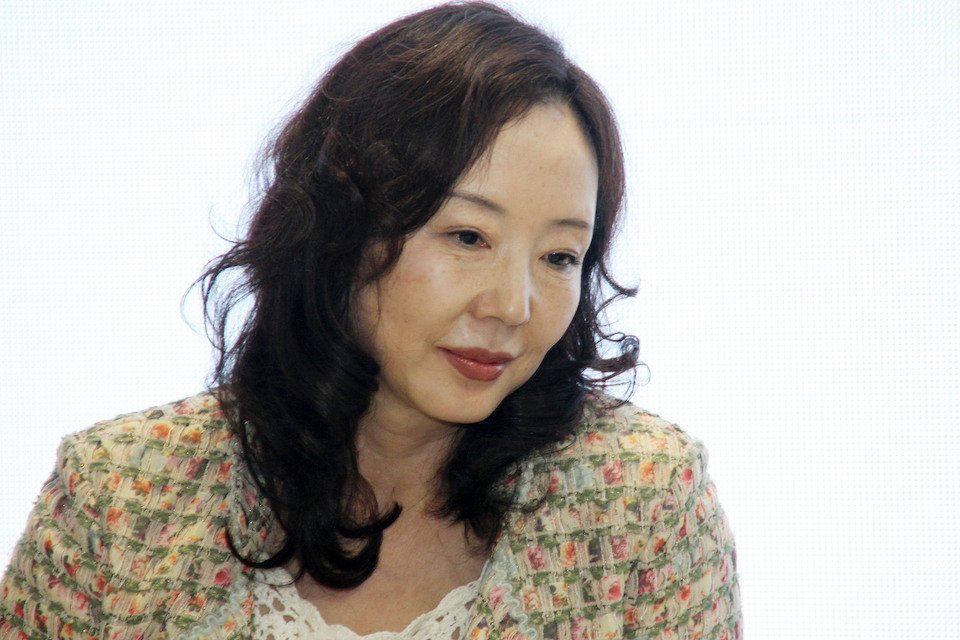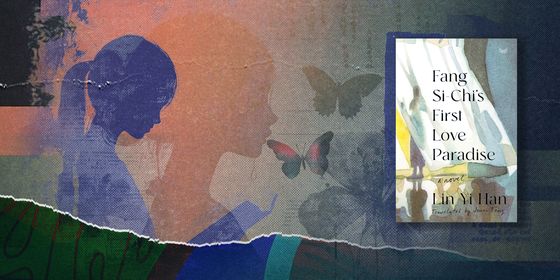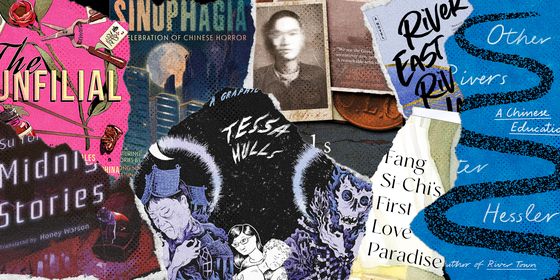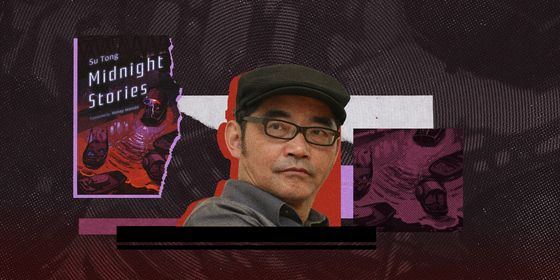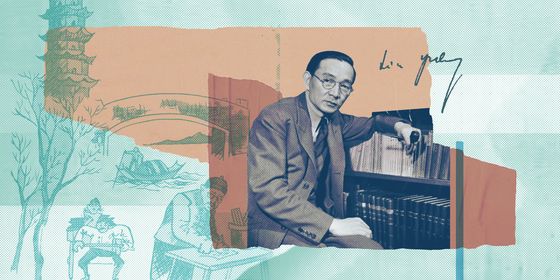The latest translated "thriller" from Geling Yan is an experience in linguistic deception, down to the title and genre of the book
From its double entendre of a title, Geling Yan's The Secret Talker sets out to explore the treachery of language. An email exchange between a reticent woman and a stranger on the internet leads readers to wonder: Who is the one with the secret? And who is doing the talking?
Originally written in 2005, and released in English in May of this year with translation by Jeremy Tiang, the novella begins with Qiao Hongmei, a former Chinese military translator living in California, receiving the first of a persistent set of emails from an anonymous stranger. Alternately flirtatious and manipulative, the stranger goads Hongmei into revealing never-before-told details from her past and questioning her stale marriage with the much-older Glen, an American literature professor whose liaison with Hongmei back in China had derailed her first marriage and sent her to prison on suspicion of passing on classified information.
Yet, like the internet stranger's cat-and-mouse game with words, this description of the book is both entirely accurate and utterly inauthentic: Hongmei's military background and the intrigue of her stalker's identity (both much emphasized on the book jacket with words like "thriller," "dark," and "intelligence") are almost incidental to the themes of mutual desire and misunderstanding that are revealed through their escalating exchange. Hongmei could have been a factory worker and the basic plot might have stayed the same, for it soon becomes apparent that the real secret she's unraveling is what had gone wrong with her marriage(s)—and perhaps herself.
This tendency to put interpersonal drama in the foreground of history is a trademark of Yan's fiction. The Criminal Lu Yanshi (adapted by Zhang Yimou into the 2016 film Coming Home) is about a family repairing relationships fractured by the Cultural Revolution; The 13 Flowers of Nanjing (the source material for 2013's The Flowers of War, also by Zhang Yimou) portrays a clash of wills between school girls and prostitutes who take refuge in a convent during the 1937 Nanjing Massacre; and Youth, the basis of Feng Xiaogang's 2018 film of the same name, is about unfulfilled love among young people who happen to be dancers in the People's Liberation Army and get sent to war in Vietnam. The Secret Talker flashes back to massacre by the Japanese, rusticated youths during the Cultural Revolution, and life in Beijing as the reform era took shape, but details and the lingering consequences of these events are left hazy, only revealed in as much as they inform the mystery of Hongmei's own psyche.
The text is frank about its bait-and-switch, perhaps ironically for a novel about deception. Words are the least reliable guide to truth in the novella, as each email from the stranger, rather than clearing up the mystery, is intentionally used by the writer to obscure his (or is it her?) identity and feelings further with suggestions, misdirection, and half-truths. Hongmei feels she can trust only nonverbal clues—a look in a passing stranger's eye, a location deduced between the lines of writing—and seeks help from Shi Nini, a fellow Chinese woman whom she confides in face-to-face. "Words disappointed him, the way they betrayed sensations," Hongmei says of the stranger's musings. "Certain feelings, when you put them into words, weren't actually like that at all." And later: "What he wanted to transmit to her was sheer emotion, without the smug interpolation of words in between...words were too slow, too clumsy, too practical and solid, too stark and violent."
At the same time, words are ultimately all Hongmei can depend on in her search for truth. It is only through her emails that the stranger, as well as the reader, learns about her past and her desires. Hongmei and Nini treat a misspelled word in the emails, "disppointed," like an important test for people they suspect to be the stranger. Her and Glen's domestic trouble is indicated by the fact that they communicate mostly by leaving notes for each other, punctuated by brief physical passion.
The one time Glen speaks volubly in the book—or rather, the only time Hongmei "paid close attention when Glen was talking...listening to [him] paid dividends": "The Metamorphosis appears to be written in the third person, but actually it's the first," Glen says at the breakfast table, quoting from a lesson he gave to his students. Hongmei's narrative is the same, as the third-person narration lingers within her own limited view to the point it often summarizes the stranger's emails in the third-person as well ("he wants," "he thinks"), rather than quoting them, at one point telling the reader his writing style was "almost like a blend of Neil Gaiman and Emily Bronte" without showing how this is so. The reader wonders once again: Is the stranger the secret that Hongmei is unraveling, or is it herself all along?
Like its double-edged title, The Secret Talker requires a second reading for its full significance: Once with the secret foremost in mind, trying to identify the talker; and the second time with the identity of the talker(s) fully disclosed, and seeing the ways they've been revealing their secret throughout.
Cover image from HarperCollins







